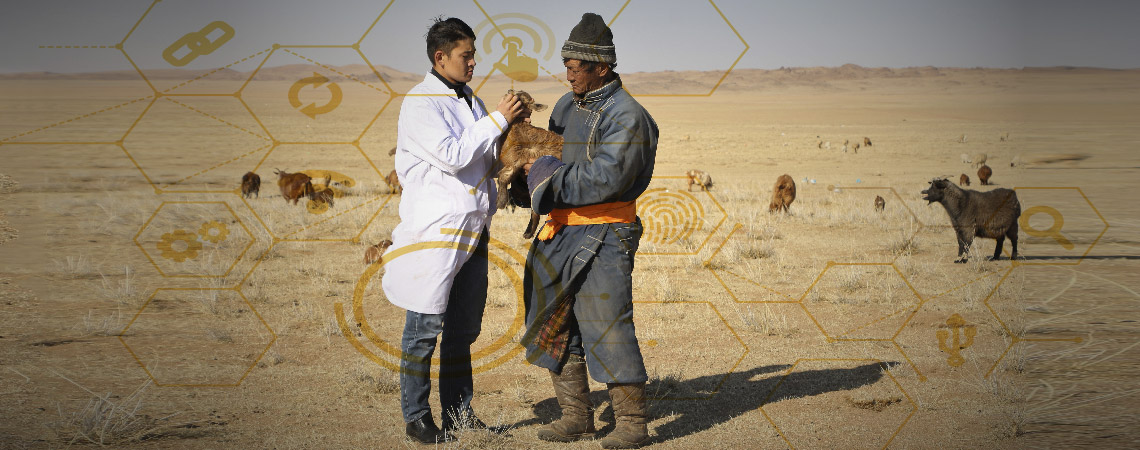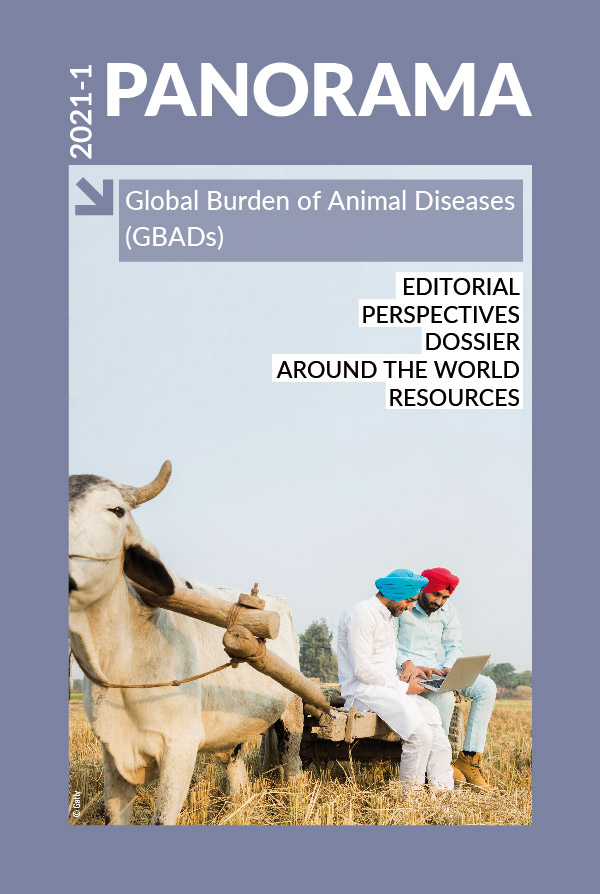Dossier Posted on 2021-08-16 11:13:10
Moving from FAIR to FAIRS and CARE for data sharing in GBADs
Keywords
Authors
D. Stacey (1)*, T. Bernardo (2) & K. Raymond (3)
(1) Co-lead Global Burden of Animal Diseases (GBADs) Informatics Theme, and Associate Professor, School of Computer Science, University of Guelph, Guelph, Canada.
(2) Co-lead Global Burden of Animal Diseases (GBADs) Informatics Theme, and Professor, Population Medicine, Ontario Veterinary College, University of Guelph, Guelph, Canada.
(3) Research Associate, GBADs, and School of Computer Science, University of Guelph, Guelph, Canada.
* Corresponding author: dastacey@uoguelph.ca
The designations and denominations employed and the presentation of the material in this article do not imply the expression of any opinion whatsoever on the part of the OIE concerning the legal status of any country, territory, city or area or of its authorities, or concerning the delimitation of its frontiers and boundaries.
The views expressed in this article are solely the responsibility of the author(s). The mention of specific companies or products of manufacturers, whether or not these have been patented, does not imply that these have been endorsed or recommended by the OIE in preference to others of a similar nature that are not mentioned.
There are many challenges with sharing data, regardless of where they fall on the spectrum from private to shared to open. GBADs seeks to improve the quality, velocity and scope of livestock data by going beyond the sharing of open data to include data generated by the private sector. It often takes a long time for open data to become available, so it is necessary to speed up the ‘time to science’ by utilising all data via advanced data sharing principles and protocols.
How can open and private data exist in the same system while providing ease of use and availability for the former and security and privacy for the latter?
FAIR [1] stands for:
- Findable
- Accessible
- Interoperable
- Reusable.
Beyond the principle of ‘open as possible, and as closed as necessary’, we have extended FAIR to FAIRS, whereby all data are Secure by design. Secure data sharing will be ensured by using appropriate access permissions, identification management, encryption and machine-to-machine communications.
GBADs is also integrating CARE into its data sharing framework. CARE [2] articulates data sharing-principles for indigenous data. The CARE principles are:
- Collective benefit to the owners of data
- Authority of data owners to control usage and access
- Responsibility to ensure benefit and respect for indigenous peoples
- Ethics grounded in respect.
FAIRS+CARE data sharing should help to ensure that all private data in the system are shared while respecting the privacy and needs of the data owners, be they private companies or indigenous peoples.
https://doi.org/10.20506/bull.2021.1.3261
References
- Wilkinson M.D., Dumontier M., Aalbersberg I.J., Appleton G., Axton M., Baak A., Blomberg N., Boiten J.W., da Silva Santos L.B., Bourne P.E., Bouwman J., Brookes A.J., Clark T., Crosas M., Dillo I., Dumon O., Edmunds S., Evelo C.T., Finkers R., Gonzalez-Beltran A., Gray A.J., Groth P., Goble C., Grethe J.S., Heringa J., ‘t Hoen P.A., Hooft R., Kuhn T., Kok R., Kok J., Lusher S.J., Martone M.E., Mons A., Packer A.L., Persson B., Rocca-Serra P., Roos M., van Schaik R., Sansone S.A., Schultes E., Sengstag T., Slater T., Strawn G., Swertz M.A., Thompson M., van der Lei J., van Mulligen E., Velterop J., Waagmeester A., Wittenburg P., Wolstencroft K., Zhao J. & Mons B. (2016). – The FAIR guiding principles for scientific data management and stewardship. Sci. Data, 3, 160018. https://doi.org/10.1038/sdata.2016.18.
- Global Indigenous Data Alliance (2020). – CARE principles for indigenous data governance.










